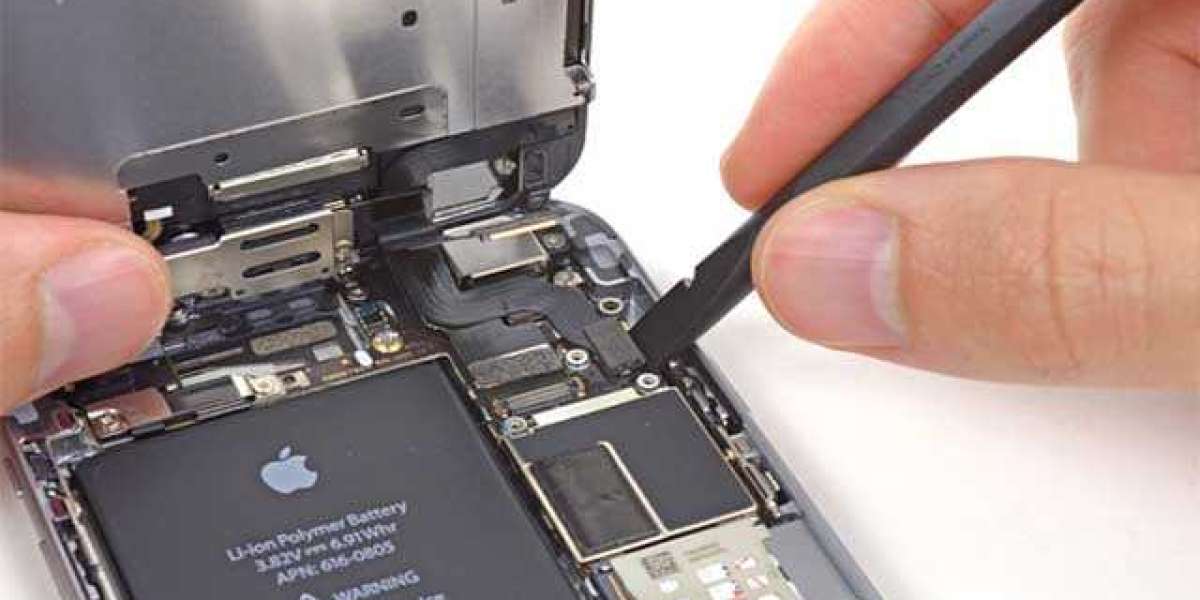Mobile phones are an integral part of our daily lives, and when they malfunction, it can feel like the end of the world. This is why mobile repairing skills are in high demand. Whether you’re looking to start a new career or simply want to be able to fix your own devices, a mobile repairing course can be a game-changer. In this article, we'll dive into the essential skills you’ll learn in a mobile repairing course and why they matter.
Basic Electronics Knowledge
Understanding Electronic Components
Before you can fix a mobile phone, you need to understand the basics of electronics. A mobile repairing course will start with the fundamentals, such as resistors, capacitors, and transistors. These tiny components might seem insignificant, but they play crucial roles in the functioning of any electronic device.
Reading Circuit Diagrams
Once you know the components, the next step is learning how to read circuit diagrams. These diagrams are like roadmaps that show you how the different parts of a device are connected. Being able to read and understand these diagrams is essential for diagnosing and repairing mobile phones.
Mobile Hardware Components
Identifying Different Parts of a Mobile Phone
Mobile phones are complex devices with many different parts. In a mobile repairing course, you’ll learn to identify and understand the functionality of each component, from the motherboard to the smallest connector.
Functionality of Each Component
Knowing what each part does is crucial. For instance, understanding how the processor works and how it interacts with other components helps you pinpoint where a problem might be originating.
Tools and Equipment for Mobile Repair
Essential Tools for Repairing
To repair mobile phones, you’ll need a specific set of tools. These include screwdrivers, tweezers, multimeters, and soldering irons. A good course will not only list these tools but also teach you how to use them effectively.
Safety Measures and Best Practices
Working with electronic devices can be dangerous if you’re not careful. You’ll learn about important safety measures, such as grounding yourself to prevent static discharge and wearing safety glasses to protect your eyes from soldering fumes.
Soldering and Desoldering Techniques
Importance of Soldering in Mobile Repair
Soldering is the process of joining two or more electronic components together using a soldering iron and solder. It’s a critical skill for any mobile repair technician because many repairs involve replacing small components on the motherboard.
Step-by-Step Guide to Soldering and Desoldering
You’ll get hands-on practice with soldering and desoldering techniques, learning how to make precise connections and fix broken ones. This includes understanding different types of solder and flux, and how to avoid common mistakes like creating cold solder joints.
Understanding Mobile Operating Systems
Overview of Popular Mobile OS (Android, iOS)
Mobile operating systems are the heart of your device. You’ll learn about the most popular ones—Android and iOS—including their structures and common issues. This knowledge is crucial for software troubleshooting and repairs.
Basic Troubleshooting of OS Issues
From frozen screens to boot loops, operating system problems can be frustrating. You’ll learn basic troubleshooting techniques to identify and resolve these issues, ensuring the smooth operation of the device.
Software Installation and Upgrades
Installing and Upgrading Mobile Software
Software problems can be as problematic as hardware issues. You’ll learn how to install and upgrade mobile software, including custom ROMs, which can breathe new life into older devices.
Handling Software Conflicts and Errors
Sometimes, installing new software can cause conflicts or errors. A mobile repairing course will teach you how to handle these situations, from clearing caches to performing factory resets without losing important data.
Diagnosing and Fixing Common Issues
Common Hardware Problems and Solutions
Mobile phones can suffer from a variety of hardware issues, such as unresponsive buttons or malfunctioning cameras. You’ll learn how to diagnose and fix these common problems, ensuring the phone works like new.
Common Software Problems and Solutions
Software issues, like apps crashing or phones running slow, are also covered. You’ll learn to identify the root causes of these problems and implement effective solutions.
Battery and Power Management
Understanding Battery Functions
The battery is the lifeblood of a mobile phone. You’ll learn about different types of batteries, how they work, and common issues like battery drain or failure.
Techniques for Battery Replacement and Management
Replacing a mobile phone battery can be tricky. You’ll get hands-on experience in safely removing and replacing batteries, as well as tips on optimizing battery performance and longevity.
Screen Replacement and Repair
Diagnosing Screen Issues
Cracked screens are one of the most common mobile phone problems. You’ll learn how to diagnose different types of screen issues, from simple cracks to dead pixels.
Step-by-Step Screen Replacement Guide
Replacing a screen involves more than just swapping out parts. You’ll learn a step-by-step process, ensuring you don’t damage other components in the process.
Camera and Audio Issues
Troubleshooting Camera Problems
Cameras are delicate components that can suffer from a range of issues. You’ll learn how to troubleshoot problems like blurry images or non-functioning cameras.
Fixing Audio-Related Issues
Audio problems, such as broken speakers or microphones, can be complex. You’ll learn techniques to diagnose and repair these issues, ensuring clear sound quality.
Network and Connectivity Troubleshooting
Solving Wi-Fi and Bluetooth Issues
Connectivity problems can be a major headache. You’ll learn how to troubleshoot and fix issues related to Wi-Fi, Bluetooth, and other wireless connections.
Addressing SIM Card and Network Problems
From SIM card recognition issues to network connectivity problems, you’ll gain the skills to diagnose and resolve these common mobile phone issues.
Data Recovery and Backup
Techniques for Data Recovery
Losing data can be devastating. You’ll learn various data recovery techniques to retrieve lost photos, contacts, and other important information.
Importance of Data Backup
Prevention is better than cure. You’ll learn about the importance of regular data backups and how to set up automatic backup systems to prevent data loss.
Customer Service Skills
Effective Communication with Customers
Technical skills are important, but so are customer service skills. You’ll learn how to communicate effectively with customers, explaining issues and solutions in a way they can understand.
Managing Customer Expectations
It’s crucial to manage customer expectations, especially when repairs take longer than expected. You’ll learn strategies for keeping customers informed and satisfied with your service.
Conclusion
A mobile repairing course equips you with a wide range of skills, from basic electronics to advanced troubleshooting techniques. These skills not only enable you to fix your own devices but also open up new career opportunities in the growing field of mobile repair. Whether you’re looking to start your own repair business or work for a service center, the knowledge and hands-on experience gained from a mobile repairing course are invaluable.
FAQs
What is the duration of a typical mobile repairing course?
The duration of a mobile repairing training course can vary, but most comprehensive programs last between 3 to 6 months, including both theoretical and practical training.



